Joshua Sun
Exploring Social Choice Mechanisms for Recommendation Fairness in SCRUF
Sep 10, 2023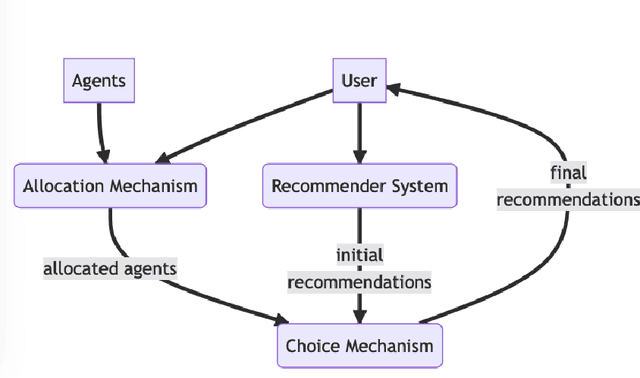
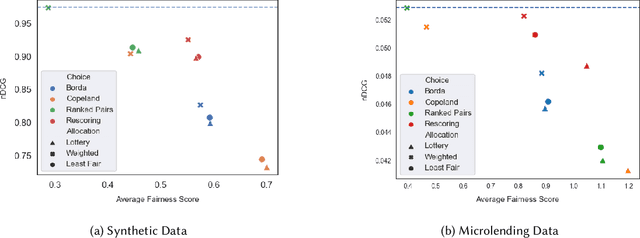
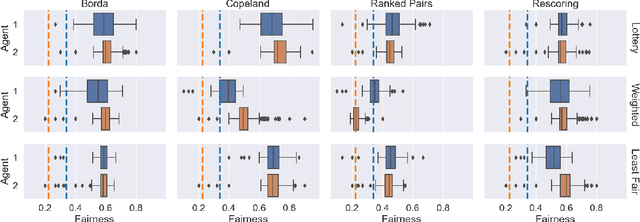
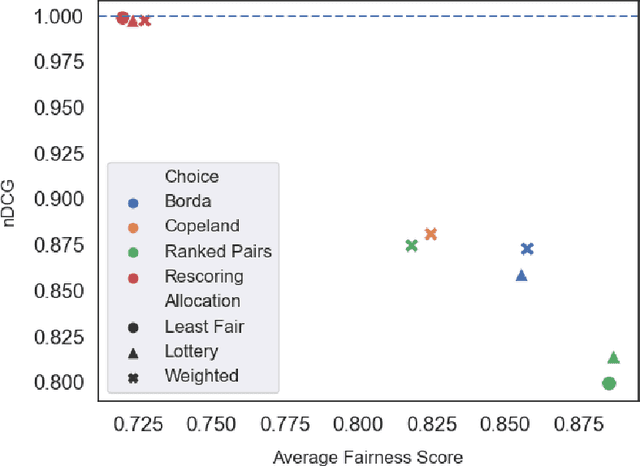
Abstract:Fairness problems in recommender systems often have a complexity in practice that is not adequately captured in simplified research formulations. A social choice formulation of the fairness problem, operating within a multi-agent architecture of fairness concerns, offers a flexible and multi-aspect alternative to fairness-aware recommendation approaches. Leveraging social choice allows for increased generality and the possibility of tapping into well-studied social choice algorithms for resolving the tension between multiple, competing fairness concerns. This paper explores a range of options for choice mechanisms in multi-aspect fairness applications using both real and synthetic data and shows that different classes of choice and allocation mechanisms yield different but consistent fairness / accuracy tradeoffs. We also show that a multi-agent formulation offers flexibility in adapting to user population dynamics.
Dynamic fairness-aware recommendation through multi-agent social choice
Mar 03, 2023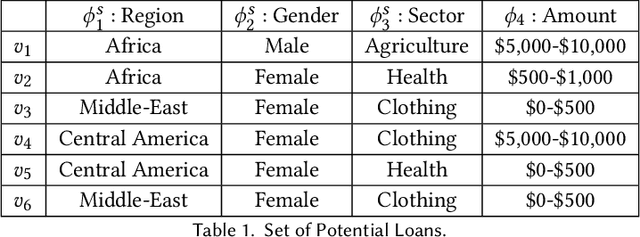


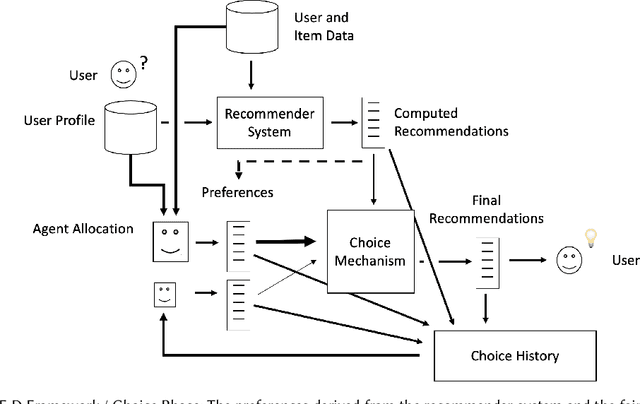
Abstract:Algorithmic fairness in the context of personalized recommendation presents significantly different challenges to those commonly encountered in classification tasks. Researchers studying classification have generally considered fairness to be a matter of achieving equality of outcomes between a protected and unprotected group, and built algorithmic interventions on this basis. We argue that fairness in real-world application settings in general, and especially in the context of personalized recommendation, is much more complex and multi-faceted, requiring a more general approach. We propose a model to formalize multistakeholder fairness in recommender systems as a two stage social choice problem. In particular, we express recommendation fairness as a novel combination of an allocation and an aggregation problem, which integrate both fairness concerns and personalized recommendation provisions, and derive new recommendation techniques based on this formulation. Simulations demonstrate the ability of the framework to integrate multiple fairness concerns in a dynamic way.
ABCTracker: an easy-to-use, cloud-based application for tracking multiple objects
Jan 29, 2020



Abstract:Visual multi-object tracking has the potential to accelerate many forms of quantitative analyses, especially in research communities investigating the motion, behavior, or social interactions within groups of animals. Despite its potential for increasing analysis throughput, complications related to accessibility, adaptability, accuracy, or scalable application arise with existing tracking systems. Several iterations of prototyping and testing have led us to a multi-object tracking system -- ABCTracker -- that is: accessible in both system as well as technical knowledge requirements, easily adaptable to new videos, and capable of producing accurate tracking data through a mixture of automatic and semi-automatic tracking features.
 Add to Chrome
Add to Chrome Add to Firefox
Add to Firefox Add to Edge
Add to Edge